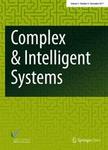版权所有:内蒙古大学图书馆 技术提供:维普资讯• 智图
内蒙古自治区呼和浩特市赛罕区大学西街235号 邮编: 010021

作者机构:Natl Univ Def Technol Coll Syst Engn Changsha 410073 Peoples R China
出 版 物:《COMPLEX & INTELLIGENT SYSTEMS》 (Complex Intell. Syst.)
年 卷 期:2023年第9卷第5期
页 面:5731-5744页
核心收录:
基 金:National Natural Science Foundation of China NSFC NNSF NNSFC (61903368 61906207)
主 题:Cloud computing Complex system simulation Computing resource prediction Learning to rank
摘 要:Predicting the computing resources required by simulation applications can provide a more reasonable resource-allocation scheme for efficient execution. Existing prediction methods based on machine learning, such as classification/regression, typically must accurately predict the runtime of simulation applications and select the optimal computing resource allocation scheme by sorting the length of the simulation runtime. However, the ranking results are easily affected by the simulation runtime prediction accuracy. This study proposes a time-sensitive learning-to-rank (LTR) approach for cloud simulations resource prediction. First, we use the Shapley additive explanation (SHAP) value from the field of explainable artificial intelligence (XAI) to analyze the impact of relevant factors on the simulation runtime and to extract the feature dimensions that significantly affect the simulation runtime. Second, by modifying the target loss function of the rankboost algorithm and training a time-sensitive LTR model based on simulation features, we can accurately predict the computing resource allocation scheme that maximizes the execution efficiency of simulation applications. Compared with the traditional machine learning prediction algorithm, the proposed method can improve the average sorting performance by 3%-48% and can accurately predict the computing resources required for the simulation applications to execute in the shortest amount of time.